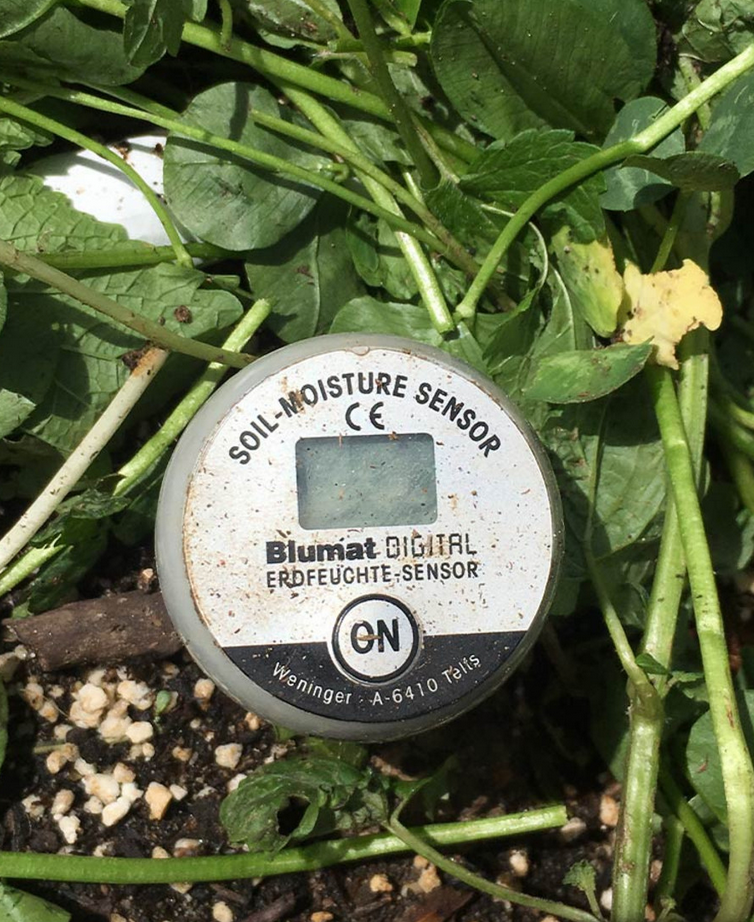Comprehending the Various Types of Moisture Meters and Their Applications
Comprehending the Various Types of Moisture Meters and Their Applications
Blog Article
The Ultimate Guide to Wetness Meters: A Comprehensive Summary and Exactly How They Can Conserve You Cash
Moisture meters offer as indispensable tools in detecting and checking moisture web content in materials, aiding in stopping costly damages and ensuring the high quality of products. Recognizing the subtleties of various types of dampness meters, their applications, and the prospective cost-saving advantages they offer can be a game-changer for organizations and specialists alike.
Sorts Of Wetness Meters
Various sorts of wetness meters are available for different applications in different markets. One typical kind is the pin-type wetness meter, which gauges the electrical resistance between 2 pins put right into a product. This kind appropriates for wood, drywall, and other building products. Pinless dampness meters, on the various other hand, usage electromagnetic sensing unit plates to check a bigger area without causing damages to the material's surface area. Moisture Meter. These meters are ideal for quickly examining dampness degrees in large areas such as walls and floorings.

Infrared dampness meters measure the thermal residential properties of a product to identify its moisture material non-invasively, making them useful for applications where pin or pinless meters may not be suitable. Understanding the different types of dampness meters offered can assist markets select the most appropriate tool for their specific moisture dimension requirements.

Advantages of Using Moisture Meters
Dampness meters provide vital benefits in precisely assessing and keeping an eye on wetness degrees in diverse products and atmospheres (Moisture Meter). One of the primary advantages of utilizing wetness meters is the avoidance of prospective damages caused by excess dampness. By finding and dealing with high moisture levels beforehand, dampness meters aid to stop mold and mildew development, rot, and architectural damage in structures, conserving both time and cash on fixings. Additionally, moisture meters help in ensuring the quality of products throughout building and construction or manufacturing procedures. By precisely measuring wetness content, these tools assist maintain the integrity of timber, drywall, concrete, and other products, minimizing the threat of failures or issues.
Additionally, using wetness meters can result in enhanced energy efficiency. By determining locations with high dampness degrees, such as leaks or poor insulation, changes can be made to boost power conservation and decrease utility expenses. In farming settings, moisture meters play a critical duty in maximizing crop returns by making it possible for farmers to keep track of soil wetness levels and make educated watering decisions. Overall, the advantages of using moisture meters extend across numerous industries, offering affordable services and promoting much better top quality control practices.
How to Select the Right Moisture Meter
Picking the appropriate moisture meter involves considering crucial variables such as material compatibility, measurement variety, and calibration precision. When selecting a wetness meter, it's vital to ensure that the meter appropriates for the specific product you will be screening. Different read what he said products have varying electric residential properties that can affect moisture readings, so selecting a meter designed for your product is vital for precise results. Additionally, take into consideration the dimension series of the dampness meter. Guarantee that the meter can spot wetness degrees within the range needed for your applications. Calibration precision is one more essential aspect to remember. Select a dampness meter with trustworthy calibration to make sure precise and regular analyses. Some meters might need routine calibration adjustments, so comprehending the calibration procedure is necessary. By very carefully evaluating these aspects, you can select a dampness meter that fulfills your demands and gives exact dampness measurements for your projects.
Appropriate Methods for Moisture Meter Usage

Price Financial Savings Via Moisture Meter Applications
Exactly how can the calculated utilization of dampness meters lead to significant cost financial savings throughout numerous industries? In the farming sector, moisture meters aid in identifying the optimal time for gathering crops, protecting against over-drying or excess moisture that can impact the last item's quality.
In a similar way, in construction, wetness meters help stop costly problems by detecting dampness levels in building materials, such as timber or concrete, which can bring about architectural problems otherwise addressed immediately. By recognizing issue areas at an early stage, professionals can his comment is here take corrective procedures to prevent extensive repair work or replacements, inevitably conserving money and time.
Furthermore, in the food handling sector, dampness meters are vital for keeping track of item high quality and guaranteeing conformity with security regulations. By accurately gauging moisture content in food items, makers can avoid spoilage, preserve quality, and reduce waste, resulting in significant expense financial savings. Overall, the critical application of dampness meters is a useful financial investment that can lead to substantial price decreases and boosted efficiency across numerous markets.
Conclusion
In verdict, dampness meters are important tools for spotting and determining moisture degrees in various materials. By utilizing the appropriate wetness meter and complying with proper methods, customers can effectively stop pricey damages created by excess dampness.
Dampness meters serve as indispensable devices in identifying and keeping an eye on moisture content in products, aiding in protecting against expensive problems and making certain the quality of items. Infrared wetness meters measure the thermal residential properties of a product to identify its dampness content non-invasively, making them helpful for applications where pin or pinless meters might not be ideal.Dampness meters offer vital advantages in accurately examining and keeping track of dampness degrees in diverse materials and environments. In agricultural setups, moisture meters play a critical role in optimizing plant returns by making it possible for farmers to keep an eye on soil moisture degrees and make informed irrigation decisions.In verdict, dampness meters are beneficial devices for measuring and discovering dampness degrees in numerous materials.
Report this page